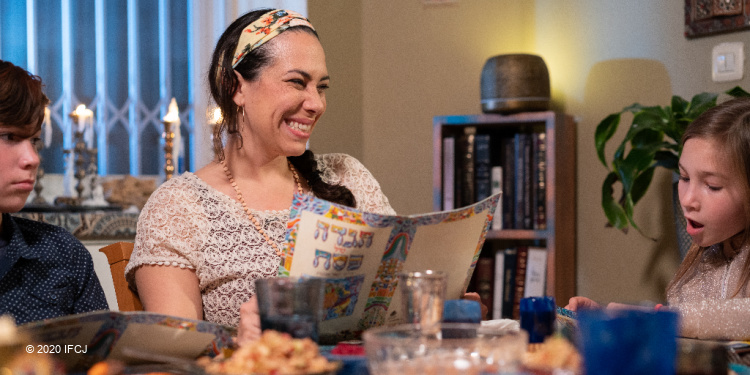The Teaching of Kindness | International Fellowship of Christians and Jews
The Teaching of Kindness
Yael Eckstein | December 23, 2022

She opens her mouth with wisdom,
And on her tongue is the law of kindness. — Proverbs 31:26 NKJV
We continue with devotional thoughts from the Book of Proverbs every Friday. One of the 11 books in the Torah known as the Ketuvim, Hebrew for “writings,” Proverbs is part of the “wisdom tradition,” which also includes Job and Ecclesiastes.
Because of the role I play as President and CEO of The Fellowship, I often find myself in very public situations. And I have to tell you, no matter how long I do this, it still makes me anxious. I just don’t like being on display.
But as uncomfortable as it is, being in situations where people are watching me actually makes me a better person. Because I know that people will notice, I find myself being extra careful about my behavior.
This healthy self-consciousness has become a habit. It’s not only something I do during work hours. As a result of thinking about how my speech and behavior is seen by others, I’ve also become more aware of how my kids see me. And that’s a good thing. As my kids get older and more perceptive, I know the example I set for them is of the greatest importance.
While this may seem like a lot of pressure, it’s not. It’s simply my job as a parent. In fact, the Hebrew word for “parent,” horah, is almost the same as the word for “teacher,” morah. In other words, according to the Hebrew meaning, the defining role of a parent is to give instruction and to educate. Parenting is teaching.
The Teaching of Kindness
The poetic description of the “Woman of Valor” in Proverbs 31 emphasizes this point. We read in verse 26, “She opens her mouth with wisdom, and on her tongue is the law of kindness.”
What is “the law of kindness?” What exactly does this phrase imply?
The Hebrew word for “law” in this verse is Torah. While Torah is the word for “law,” it is more accurately translated as “instruction.” Torah is derived from the same Hebrew root as “teacher,” morah, and “parent,” horah. We could accurately translate the end of the verse as “the teaching of kindness is on her tongue” as it is in many Bible translations.
But acts of kindness are not what this verse is about at all. Rather, this verse describes the moral leadership within the woman of valor’s home, specifically in the education of her children. The woman of valor is careful about how she speaks and what she says. When she opens her mouth to speak, what comes out is “the teaching of kindness.”
And as we see in the verses that follow that her diligent parenting bears fruit in her children, who “rise up and call her blessed” (v. 28).
Your Turn:
This week, devote one day to giving extra thought to how others may perceive your speech and actions. See how that impacts your interactions and relationships with others.
Comments
Post a Comment